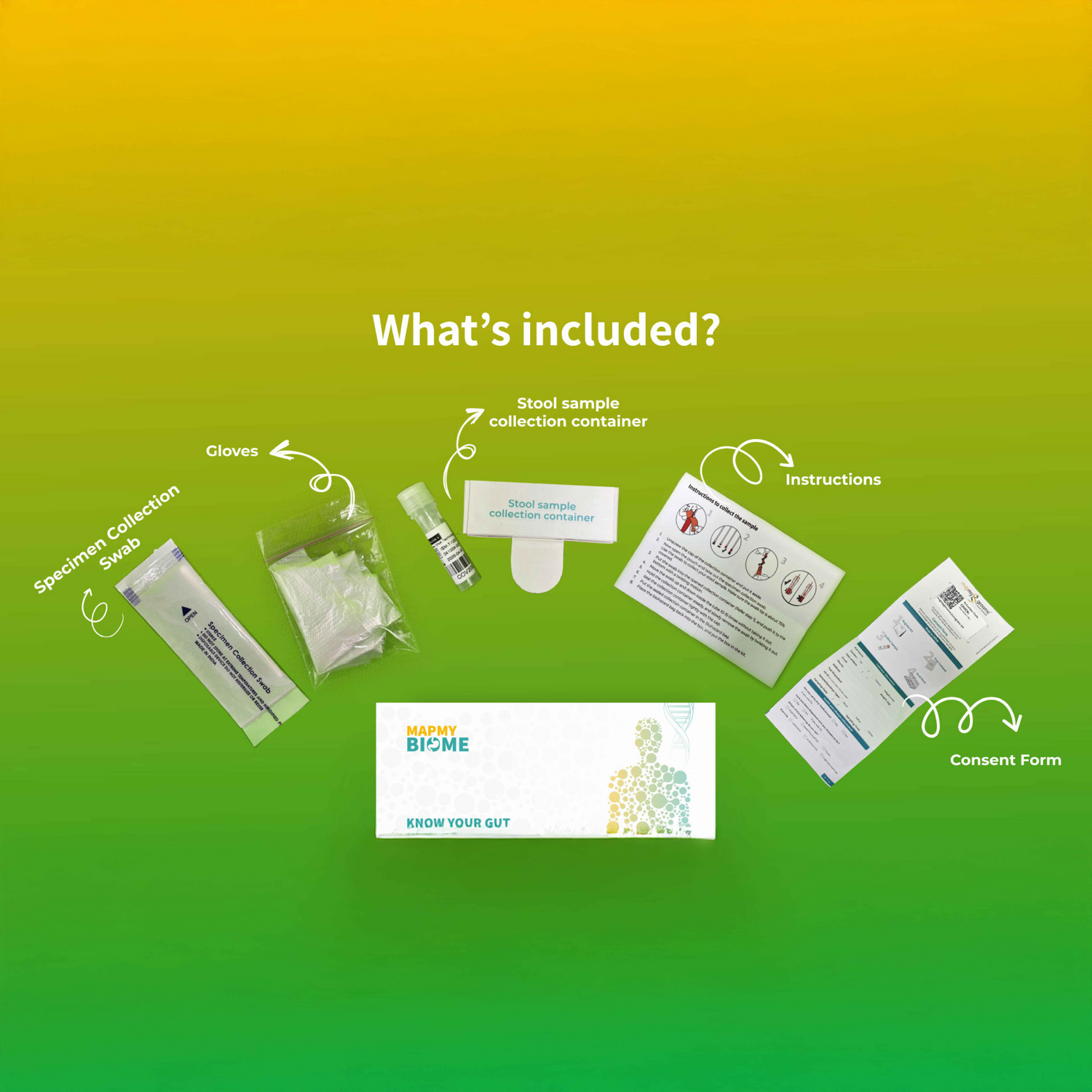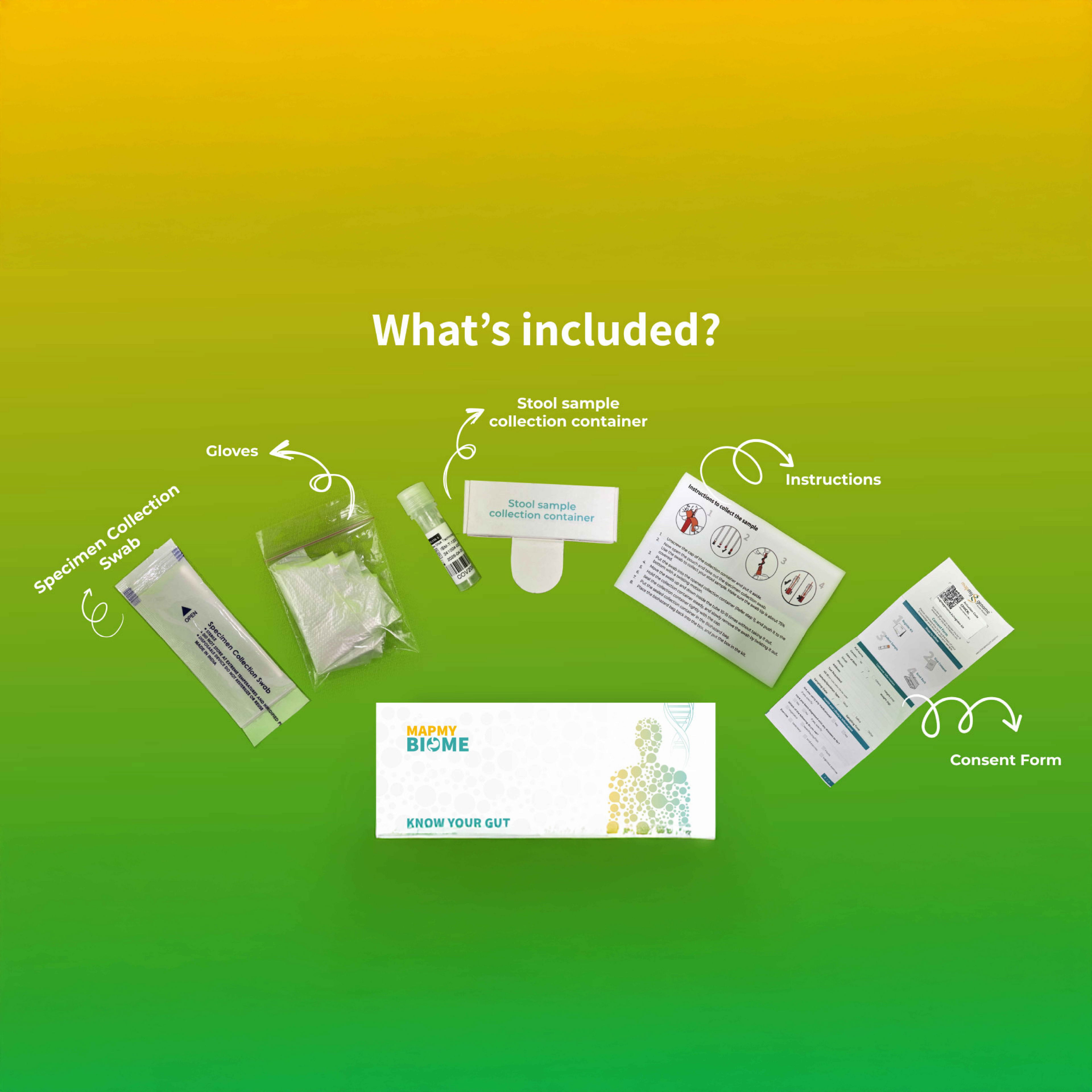Remember Amitabh Bachchan's iconic grumbling belly in the 2015 film "Piku"? The humorous, all-consuming focus on his bowel movements? For millions, his experiences are not just comedic relief; it's daily life. The constant bloating, unpredictable dashes to the loo, or the stubborn refusal to go at all, sometimes our guts can feel like temperamental Bollywood stars throwing a dramatic tantrum.
While we might not have Deepika Padukone to chauffeur us through our digestive woes, the good news is, we do have science. And it's getting incredibly personal. We're talking about understanding your gut from its genetic blueprint to its bustling microbial city, and yes, even sniffing out tiny, unwelcome guests.
The Sneaky Squatter: Meet H. pylori
Before you blame that last plate of biryani for your woes, let's talk about a silent, often overlooked villain: Helicobacter pylori, or H. pylori. This little bacterium loves to set up camp in your stomach lining, and while it might seem harmless, it's a known instigator of gastritis, ulcers, and that general feeling of upper abdominal unease.
Think of it as the uninvited guest at your gut party, subtly messing with the sound system (stomach acid production) and potentially inviting more troublemakers (like SIBO, Small Intestinal Bacterial Overgrowth, where the small intestine gets overcrowded). Many H. pylori symptoms, bloating, indigestion, pain, mimic those of IBS, leading to a frustrating merry-go-round of self-diagnosis. So, step one: before blaming the onions, rule out the actual squatter!
Unmasking Your Food Triggers
Once H. pylori is either cleared or ruled out but your gut is still throwing a fit, you can turn to FODMAPs. This mouthful stands for Fermentable Oligo-, Di-, Mono-saccharides And Polyols. In simpler terms, they're short-chain carbs that your small intestine isn't great at absorbing. Instead, they speed-dial your large intestine, where your gut bacteria throw a grand fermentation party, producing gas and causing all sorts of delightful symptoms like bloating, pain, and unpredictable bowel habits.
The low-FODMAP diet is essentially a detective mission: you eliminate these suspects for a few weeks, then reintroduce them one by one to identify your personal triggers. It's a game-changer for many with IBS, bringing much-needed relief.
So, What's on the Menu? Low-FODMAP Friendly Foods!
Fear not, it's not all doom and gloom! There's a surprising variety of delicious foods that are generally considered low in FODMAPs:
-
Fruity Fun: Bananas (ripe but firm, not overripe!), blueberries, cantaloupe, grapes, kiwi, oranges, papayas, pineapple, raspberries, strawberries.
-
Veggie Allies: Bell peppers (all colors), carrots, cucumber, eggplant, green beans, kale, lettuce, potatoes, spinach, zucchini, tomatoes.
-
Grainy Goodness: Rice (white, brown), quinoa, oats (rolled or steel-cut), gluten-free pasta, gluten-free bread (always double-check labels for sneaky high-FODMAP additives!).
-
Protein Power: Cooked meats (chicken, mutton, fish – think Hyderabad's delicious kebabs!), eggs, firm tofu (water-packed), tempeh (plain).
-
Dairy & Alternatives: Lactose-free milk, lactose-free yogurt, hard cheeses (like cheddar, Parmesan), plain almond milk, rice milk.
-
Nuts & Seeds (in moderation): Peanuts, pecans, pumpkin seeds, sesame seeds, walnuts.
-
Sweet Treats: Maple syrup, white sugar, pure stevia.
-
Flavor Boosters: Most fresh and dried herbs and spices (just avoid the ones with hidden garlic or onion powder!).
Remember, it's often about portion size too. Even a "high-FODMAP" food might be fine in a small quantity. It's like finding your personal "Piku" sweet spot – not too much, not too little, but just right for your system.
Also Read: Gut Check: 6 In-Depth Signs Your Gut Might Be Struggling
Beyond the Plate
While the low-FODMAP diet is a fantastic starting point, your gut's story runs deeper. Why do some people sail through a plate of dal while others end up feeling like a human hot-air balloon? The answer lies in your unique genetic code and the bustling metropolis of microbes living inside you.
-
Your Genes are Talking (or Grumbling): Your DNA can predispose you to certain sensitivities. For example, lactose intolerance is a genetic lottery! Similarly, your genes can influence how well you absorb fructose or even how sensitive your gut nerves are to discomfort, which is a key player in IBS.
-
The Gut Microbiome: Your Inner Ecosystem: Trillions of bacteria call your gut home, and they're constantly feasting on the food you eat. The types of bacteria you have and their activity dictate how FODMAPs are fermented, how much gas is produced, and ultimately, how comfortable you feel. An imbalanced microbiome (dysbiosis) can make you more susceptible to gut problems. A restrictive low-FODMAP diet, if not managed carefully, can inadvertently reduce the diversity of these important gut residents, which is why strategic reintroduction is crucial.
Mapmygenome to the Rescue!
Navigating this intricate world of gut health can feel like a labyrinth, but here in Hyderabad, companies like Mapmygenome are simplifying the journey with cutting-edge science. They're helping you move beyond guesswork to truly personalized digestive wellness.
-
MapmyBiome™ - Your Gut's Biography: This at-home gut microbiome test is like getting a detailed biography of your gut bugs. By analyzing your stool sample, MapmyBiome identifies the specific bacteria living inside you. Are your beneficial bacteria thriving? Are there any unwanted guests causing trouble? You'll get insights into your gut diversity, potential imbalances, and receive personalized recommendations for diet, prebiotics, and probiotics tailored to your unique microbial community.
-
Genetic Testing (e.g., MyNutrigene): Curious if you're genetically predisposed to lactose or fructose intolerance? Mapmygenome's genetic tests can reveal how your DNA influences your digestion and metabolism. This can offer profound clarity, explaining lifelong sensitivities and guiding you towards a diet that's truly in sync with your body.
-
H. pylori Antigen Detection Test: Crucially, MapmyBiome also provides insights into the presence of H. pylori (the aforementioned villain), making it a one-stop shop for comprehensive gut health. For those experiencing symptoms right here in Hyderabad, Mapmygenome offers a convenient at-home H. pylori antigen detection test. It's the smart first step to rule out this common infection and avoid unnecessary dietary restrictions.
Beyond the Piku Moments: A Future of Digestive Harmony
No one wants their life to revolve around their toilet, or for every meal to be a source of anxiety. The future of gut health is personalized, powered by a blend of genomic insights and microbiome understanding. By combining advanced testing with expert guidance, you can:
-
Rule out common culprits like H. pylori before diving into restrictive diets.
-
Understand your genetic predispositions to specific food sensitivities.
-
Unravel the mysteries of your unique gut microbiome, learning how to feed it right.
-
Develop a truly personalized strategy to manage FODMAPs, alleviate symptoms, and foster long-term gut resilience.
So, if your gut is still throwing a Bollywood-worthy drama, it's time to get some answers. Take control of your digestive narrative. Explore the insights Mapmygenome can offer right here in Hyderabad, and start writing a new, much more comfortable, chapter for your gut. Because a happy gut means a happy you, no dramatic movie plots required!















